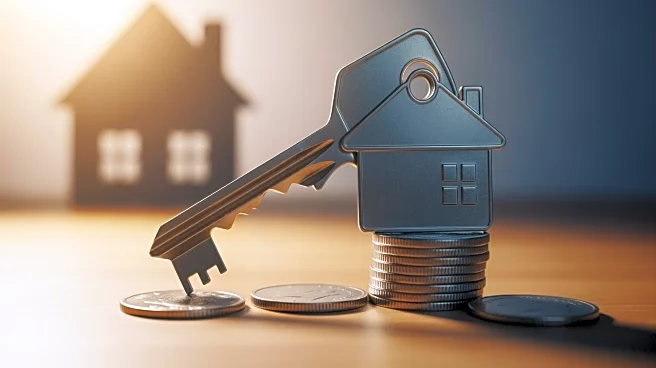What's Happening?
The number of homeowners in the United States has decreased for the first time in nearly a decade, according to a report by realty company Redfin. As of April 1, 2025, approximately 86.19 million Americans owned homes, a slight decline from 86.28 million in 2024.
This marks the first drop in homeownership since the second quarter of 2016. The decline is attributed to high inflation and increased interest rates that began in 2022, leading to a significant rise in mortgage rates. These economic conditions, coupled with soaring real estate prices, have priced many potential buyers out of the housing market. Consequently, the percentage of Americans renting their homes has increased slightly, as renting has become relatively more affordable compared to buying.
Why It's Important?
The decline in homeownership has significant implications for the U.S. economy and society. High mortgage rates and real estate prices are making it difficult for many Americans to achieve homeownership, traditionally seen as a key component of the American Dream. This shift could lead to increased demand for rental properties, potentially driving up rental prices and affecting housing affordability. Additionally, the trend may impact the real estate market, financial institutions, and consumer spending patterns. Young Americans delaying marriage and family formation, thus postponing home purchases, could further influence demographic and economic trends.
What's Next?
If current economic conditions persist, the trend of declining homeownership may continue. Policymakers and industry stakeholders might need to address the affordability crisis in the housing market. Potential measures could include revisiting interest rate policies, implementing housing subsidies, or encouraging the development of affordable housing. The real estate industry may also need to adapt to changing consumer preferences and economic realities.
Beyond the Headlines
The shift in homeownership patterns could have long-term cultural and societal impacts. As more Americans opt to rent, there may be changes in community dynamics and urban development. The traditional view of homeownership as a measure of success and stability might evolve, influencing future generations' financial and lifestyle choices.
















